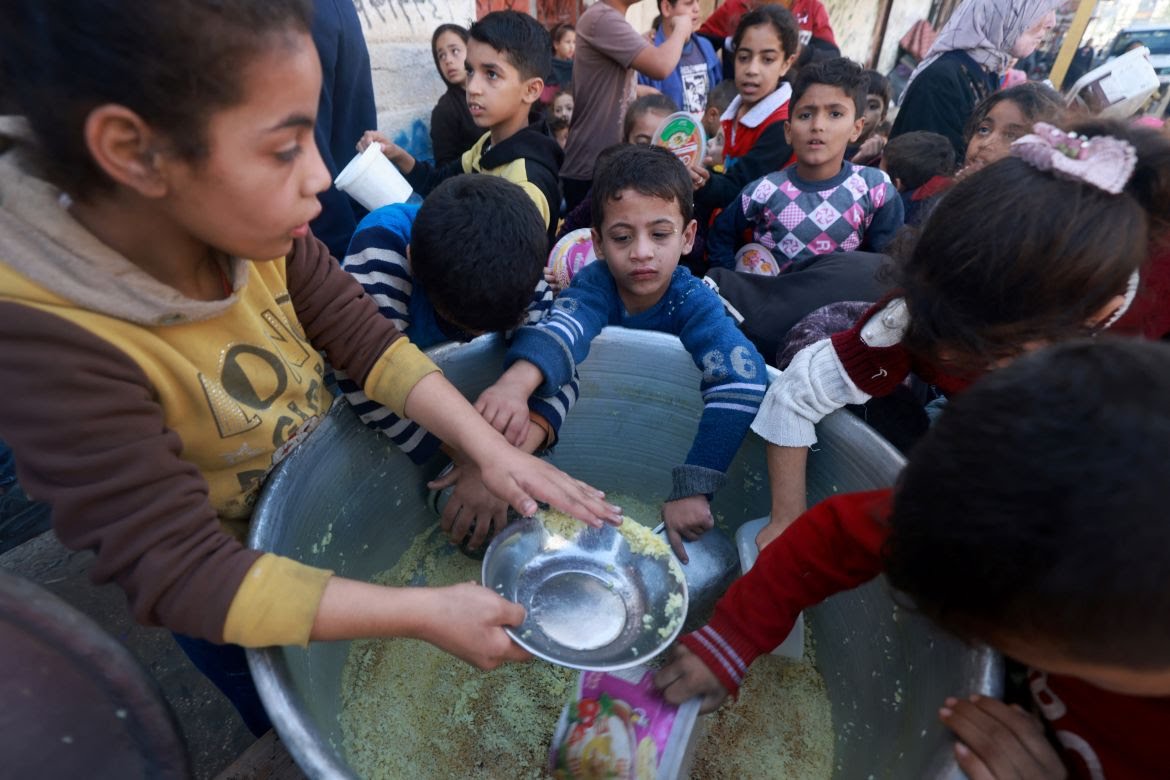Scores of children can be seen walking around in Muwasi, a coastal town in Southern Gaza, tagged a “safer” zone by the Israeli military.
 |
| Palestinian children collect food at a donation point provided by a charity group in the southern city of Rafah in December, 2023. Photo: Mohammed Abed/AFP via aljazeera.com |
These children are walking as if they are heading to schools, but, they are carrying jerrycans, waiting for several hours in long queues at water stations for water under the hot summer sun, hoping to fetch some for themselves and their families.
On Wednesday, from nearby Khan Younis, a spokesperson for UNRWA, the United Nations agency for Palestinian refugees, Louise Wateridge, said, “It’s the morning routine.
“Children are carrying water the weight of themselves back to their shelters,”
She further said, they can spend more than six hours trying to collect both food and water.
According to nbcnews.com:
Just 10 miles to the north, in the municipality of Deir Al-Balah, officials said in a statement on Facebook on Monday that facilities serving “more than 700,000 people,” with water were effectively “out of service.”
They added that 19 water wells and two water tanks had “completely stopped working,” after they ran out of fuel. “We call on all citizens to keep what they have left in their private tanks,” the municipality said, urging a “spirit of cooperation and participation.”
Humanitarian groups operating in the Gaza Strip have warned for months of the serious health threat posed by a lack of clean drinking water and by the buildup of untreated sewage in Gaza in the midst of the summer heat.
And an analysis conducted in May by the Global Nutrition Cluster of the World Health Organization found that almost 90% of children under the age of 5 in the enclave were affected by one or more diseases, and 52% had suffered with diarrhea in the past two weeks, as it warned that household access to safe water remained limited.
WHO spokesman Christian Lindmeier said in a phone interview Wednesday that the lack of consistent access to clean water posed a serious risk of dehydration and the spread of disease, including diarrheal disease, in the enclave.
“Access to water is … basic to human life,” he said. “Unsafe drinking water can really be a death sentence.” Although cholera was not present in Gaza, “acute diarrheal disease is just as dangerous,” he added.
